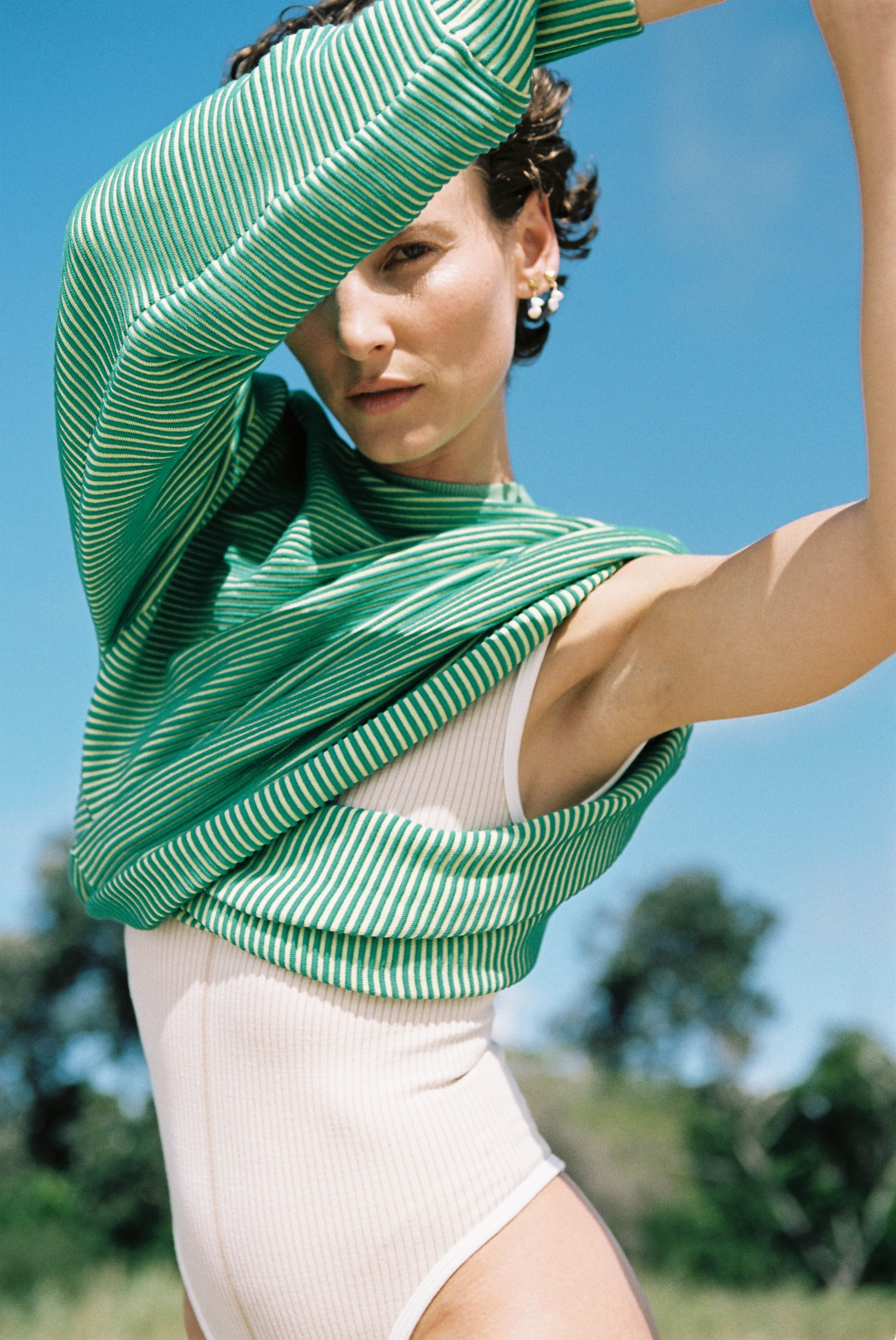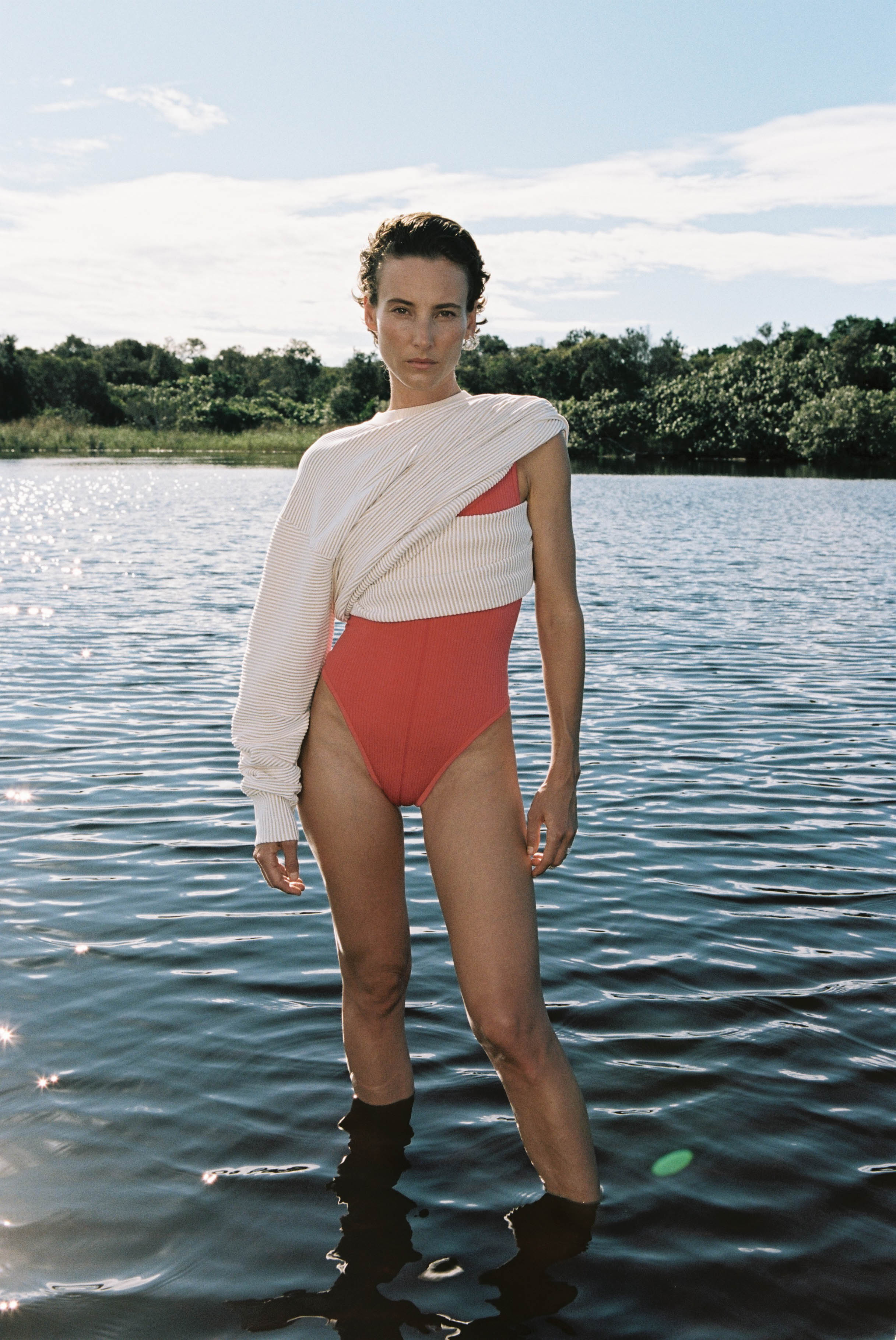
SUSTAINABLY MINDED
To be truly sustainable is to be regenerative. Our ultimate goal is to give back more than we take – to support the ecosystems that support us. How do we plan to do this? By making the most environmentally and socially conscious choices available across all areas of our business. If there’s a better way of doing something, we want to implement it.
Nagnata was originally founded on the philosophy of ‘sustainably minded design’ because overall making new fashion is not sustainable, but if we as an industry continue to make better choices our impact on the environment will steadily decrease.
From the beginning, our focus has been on pushing boundaries in the industry through textile innovation. By applying advanced technology to the properties of organic, natural and renewable fibres, we have created the technical knit fabrications synonymous with the brand today. The sports industry is primarily focused on using synthetic fibres for performance garments, and while this is an easier and more cost effective option, it’s not great for the planet or for human health. We want to do better – much better – which is why we continue to challenge this outdated approach, exploring new ways to integrate sustainable fibres and further reduce synthetics in Nagnata garments. Synthetic fibres are derived from petrochemicals and take an eternity to break down, choking our waterways and our wildlife. Skin needs to breathe, and so does the earth.
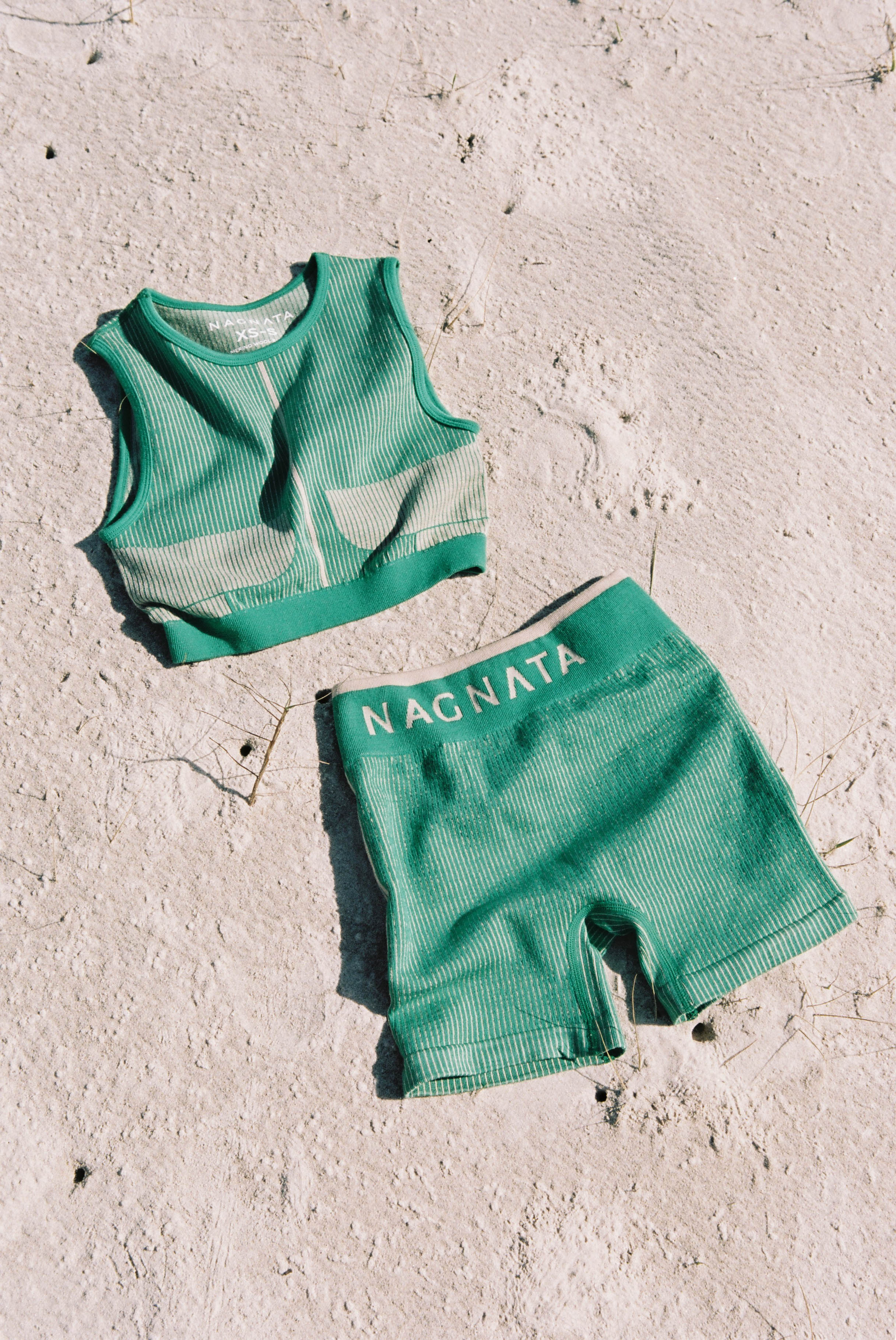
NATURAL, RENEWABLE, ORGANIC
One of Nagnata’s founding intentions was to disrupt the performance wear market by moving away from using synthetic fibres commonly found in clothing of this kind. We wanted to create a uniform for movement made primarily from natural fibres, which are far better for the health of people and the planet.
A key fibre used in Nagnata’s Movement knitwear and lifestyle lines is GOTS certified organic cotton. The launch collection, ‘Movement 001’, was made using 85% organic cotton in each garment and still remains an essential fibre featured in all of our movement and lifestyle lines today.
Merino wool is also an important fibre featured in Nagnata collections. Merino Wool is a natural and renewable fibre, grown year-round by Merino sheep. Merino Wool is one of the world’s most technically advanced natural fibres, with unique moisture and temperature regulating properties. Wool in general is durable and naturally antibacterial, which means there’s less need for frequent washing. When cared for properly, woollen garments will last for many years.
Nagnata was fortunate to form a close partnership with The Woolmark Company early on. Using superfine Australian Merino Wool, we collaborated with the iconic Australian company to create an innovative seamless Core performance fabrication on circular knit machines. Since then, we’ve continued to develop new Merino Wool fibre blends and fabrications, working closely with yarn spinners and knitwear technicians. We remain committed to pushing boundaries in the performance wear space by constantly seeking to improve durability, longevity and functional factors in each of our collections.
In addition, we have been working on shifting all Merino collections to RWS Wool, also known as Responsible Wool Sourcing. RWS is a voluntary standard that addresses the welfare of the sheep and the land they graze on. Merino Wool has a lower water footprint than organic cotton and polyester. Organic cotton has both low carbon emissions and low–medium water consumption impacts. Virgin synthetic fibres are extremely water intensive, which is why we’re aiming to replace all virgin synthetics with recycled synthetics where unavoidable content is required in small amounts (mainly for the stretch component of a garment). We’re working hard towards replacing all virgin synthetics with recycled and biodegradable versions within 1 – 2 years.
Looking back, we’re extremely proud of how far we have come in our efforts towards making Nagnata an ethical and sustainable business. There’s still a long way to go, but we know that with each conscious action we take, we’re one step closer to meeting our most ambitious goals.
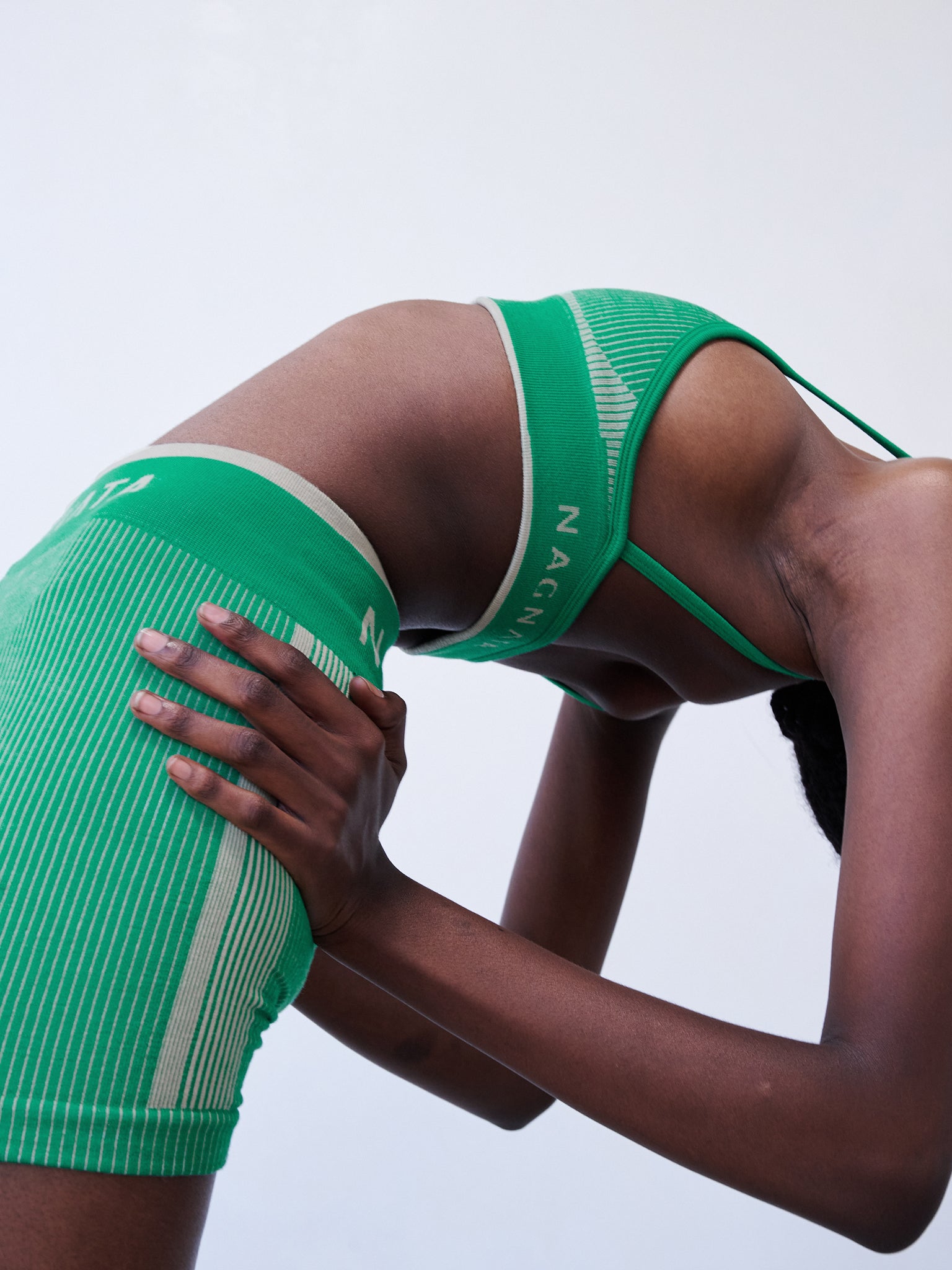
MINIMISING WASTE
Excess waste is one of the biggest environmental issues we face as an industry. Since the launch of our very first collection, Nagnata has been committed to minimising the overall waste of raw materials in our production, opting to work primarily with engineered knits over cut-and-sew garments. The great thing about engineered knitwear is that minimal or zero yarn waste is achievable compared with cut-and-sew garments, which produce substantial offcuts that usually end up in landfill. With approximately 35% of all materials in the supply chain ending up as waste before a garment is even created, this is something that Nagnata has been able to negate by knitting garments to shape and avoiding fabric offcuts. By utilising this technique we have the ability to experiment with new yarn combinations, allowing us to introduce a new concept and style of garment into the market not yet available in the lifestyle/performance-wear space.
Since expanding our collection categories to include fabrics and styles manufactured differently – including the use of circular knit seamless machines required for our Core Merino Wool collections – we do deal with some wastage, which has inspired us to come up with creative ways of re-using offcuts. We’re currently in the process of working with our suppliers to produce hair scrunchies and other unique accessories from the excess knit fabrics, which are set to launch in 2022.

DESIGNED TO LAST
We’ve created the Nagnata uniform with versatility, longevity and functionality in mind – our pieces will take you from the studio to the street and everywhere in between.
One of the more challenging aspects of waste reduction is measuring the longevity of a garment. Why? Because everyone wears and cares for their clothes differently. This is why we see longevity as a collaborative effort between designer, maker and wearer. Using high quality fabrications and exceptionally skilled makers ensures that our garments are built to last, but how well they’re cared for by the wearer also plays a significant part in the sustainability of a garment.
We choose to use natural fibres because we care about quality, human health and environmental impact, but they do require a little extra care. Because the yarns are shorter in natural fibres than they are in synthetics, they are more likely to snag and pill over time, which is why we provide tools and tips to help our customers preserve the quality of their piece. With a little love, Nagnata knits will age beautifully and can be worn forever.
Learn how to properly care for your garment with our care guide.
HONEST MESSAGING
“Green washing” is rife in the fashion industry, and we are not ok with it. At Nagnata we’re conscious about the way we communicate with our community. We make a point of being honest about the areas in which we are successfully innovating while acknowledging the obstacles we encounter in both business and product development.
We’re on a journey of discovery and we encourage our Nagnata community to be a part of our ongoing process by welcoming constructive feedback and dialogue with our customers and collaborators. We believe that full transparency is the only way to grow, improve and stay true to our ethos.
Becoming a climate positive, ethical business, and working towards giving back more than we take, isn’t always an easy (or cheap) process, but it’s one we’re wholeheartedly committed to achieving. We believe it is the responsibility of brands to build a purpose driven platform, because our future as an industry, and as a planet, depends on it. We are proud to announce Nagnata is the first Australian fashion brand to become a certified Toitū Climate Positive business.
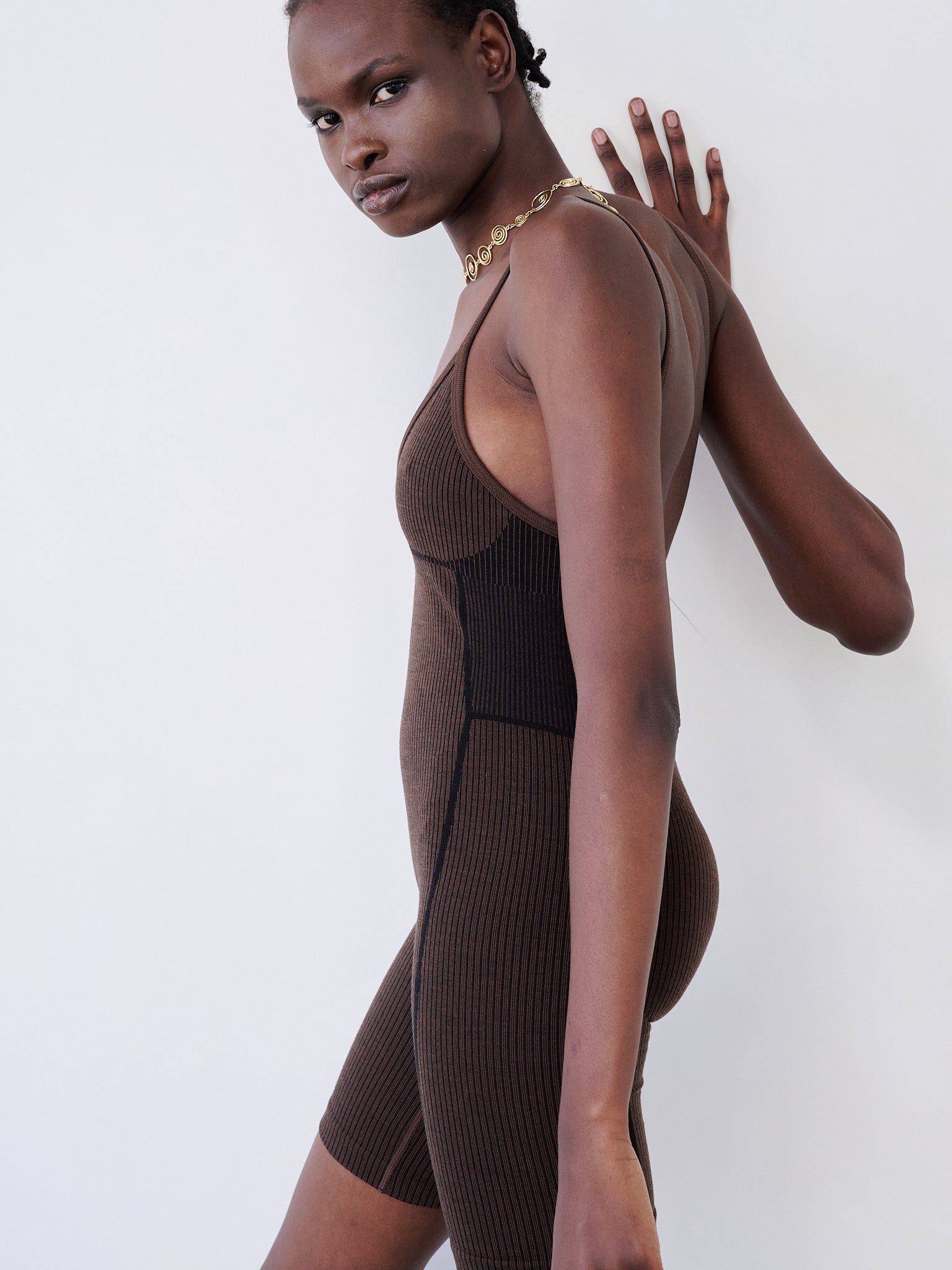
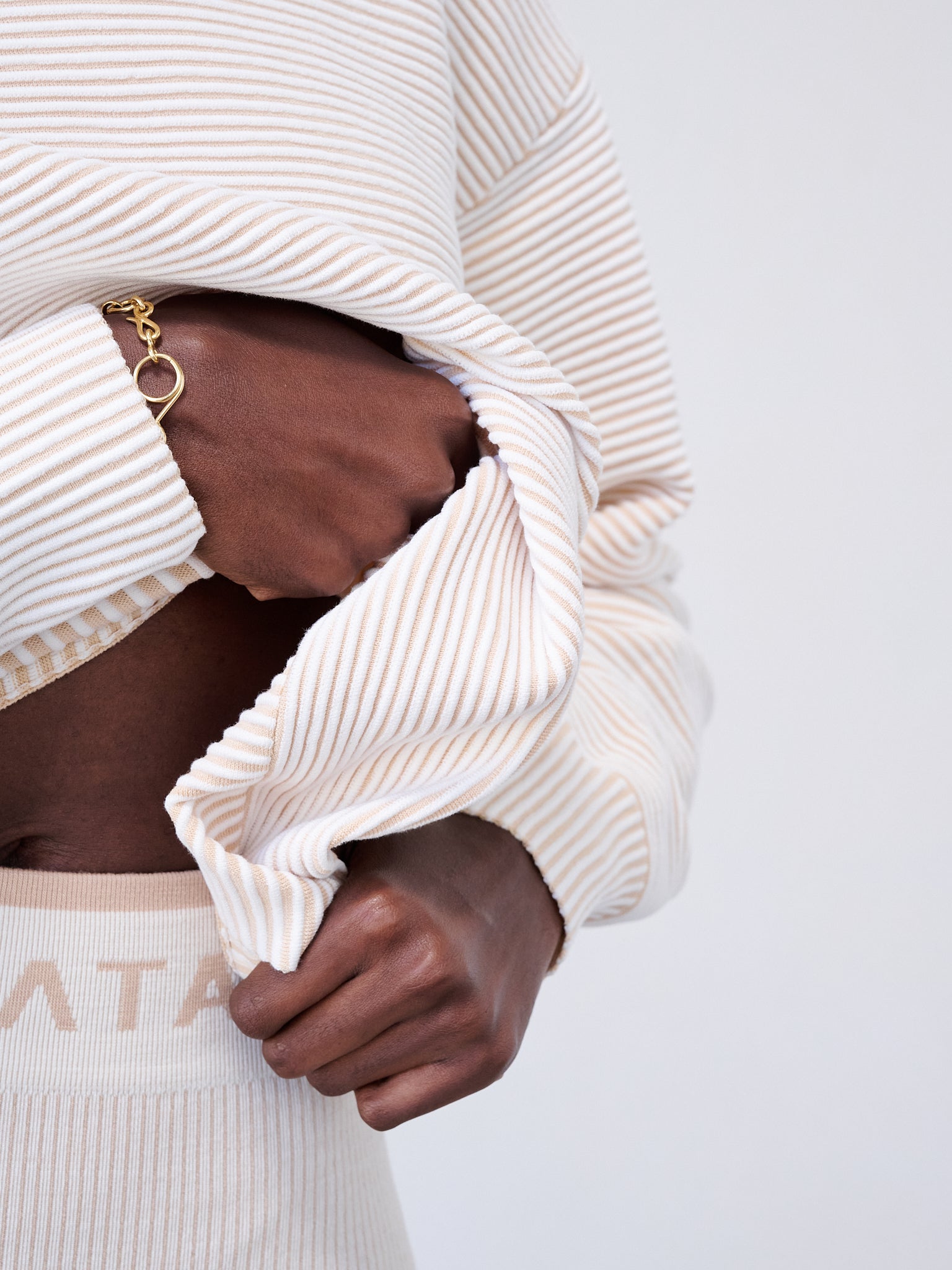
INNOVATION AT THE HEART OF OUR PROCESS
Experimentation is an integral part of our creative process. We’re constantly questioning, testing, and exploring new ways of doing things – whether it’s fabric innovation or refining our production systems. Being so focused on genuine sustainability, we encounter a lot of restrictions within design and production. Ultimately, though, it’s these challenges that encourage creative problem solving and inevitably lead us to greater ideas and innovation.
When Nagnata launched in 2015, natural fibres weren’t commonly used in sportswear for stretch garments because the yarns tend to break easily during the knitting process. This is one of the main challenges we continue to face when dreaming up new ways of working with natural fibres. The technical knit fabrications that have become synonymous with Nagnata have taken years of testing to perfect, and it was worth it for the results.
Finding the ultimate balance between style and sustainability is what keeps us moving forward, pursuing new ideas and pushing boundaries in the industry. The potential for future growth and innovation far beyond anything we’ve seen before exists at the intersection of these two ideas – and for us, that’s the most exciting place to be.
CLEANER CLOTHING: WHAT YOU PUT ON YOUR SKIN MATTERS
The fashion industry is the world’s second largest polluter behind the oil industry. The textile industry is the third largest user of water globally after the oil and paper industries. It’s an unglamorous reality that’s tough to face, but if we don’t address it the consequences will be dire – for us and for the planet. This is why we made the decision early on to be pioneers in fabric innovation, choosing natural, certified yarns and fabrics, which have a significantly lower water footprint than synthetic garments such as polyester or nylon. The washing of synthetic fabrics creates microfibre waste, which runs into our waterways and marine habitats, with nearly 35% of this coming from consumer households. In addition to their effect on natural ecosystems, the production of synthetic fibres is a significant contributor to climate change. Synthetics are made from chemicals known as polymers that are derived from petrochemicals (i.e. crude oil), making the fashion industry a major consumer of fossil fuel, which as we know is a leading cause of climate change. The harmful impact of synthetics on the planet is clearly a serious issue, but it’s not our only concern.
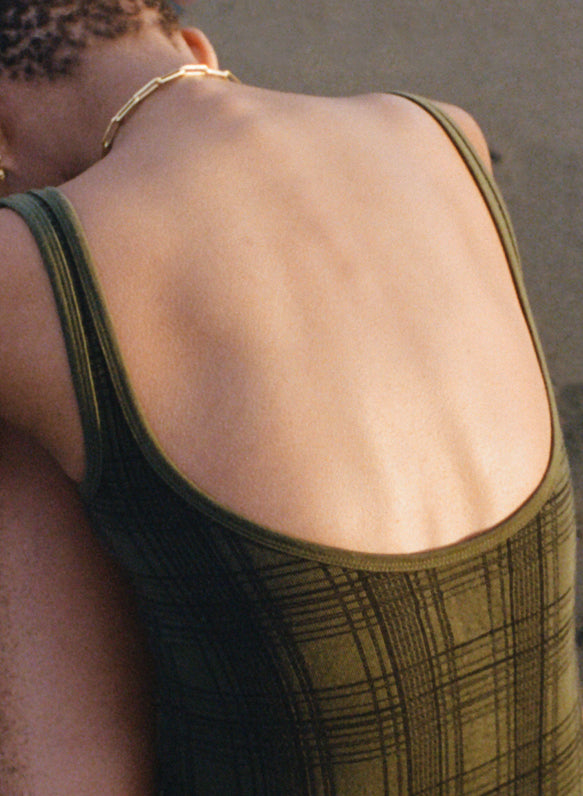

Skin is our largest organ and dermal absorption means that chemicals from our clothing can enter our system. There’s been a lot of discussion in recent times about the harmful toxins and chemicals found in beauty products, but what of those hidden in our clothing? As we mentioned, synthetics are derived from petrochemicals and non-organic fibres frequently contain high levels of pesticides and fertilisers used in conventional farming. We don’t want that on, or in, our bodies, which is why Nagnata uses the highest possible content of natural and organic fibres in our garments.
In circumstances where we do need to use synthetics as an unavoidable component of a stretch garment, we opt to work with core-spun yarns where possible. Our core spun yarns have a stretch filament yarn wrapped in superfine Merino Wool, so only the natural fibres touch the skin.
These subtle considerations may go unnoticed by our customer, but they’re extremely important to us. Upholding our commitment to a conscious and transparent design process is a non-negotiable for Nagnata, and we want each garment to reflect that.



